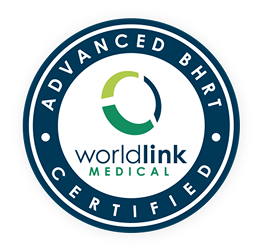If your body starts changing in your late 30s or early 40s, menopause might not be your first thought. Most women expect it around age 51 or 52, the average ages in the US.
Signs like irregular periods, hot flashes, and night sweats may be stress-related. For a subset of women, however, these signs can point to early menopause. Knowing what to look for helps you get support faster.
What Is Early Menopause?

Early menopause means periods stop permanently before the age of 45. Your ovaries stop releasing eggs, producing less estrogen and progesterone. This causes the same changes as standard menopause. Blood tests can show low hormone levels, but they’re not always needed. Your doctor can help assess your individual situation before recommending any management strategies.
Early Menopause Symptoms to Watch For
Signs of early menopause look like regular menopause symptoms. But when you’re in your 30s or early 40s, you may dismiss them a lot more easily, pinning it on stress. Some women experience just a few symptoms, while others deal with many at once. The pattern helps determine a diagnosis.
Physical Symptoms
- Late or skipped periods
- Changes in menstrual flow
- Hot flashes and sudden warmth
- Night sweats that affect your sleep
- Vaginal dryness that makes sex uncomfortable or painful
- Weight gain around your middle, despite no diet or exercise changes
Mental or Emotional Signs
- Mood swings between irritability and anxiety without clear triggers
- Brain fog that makes it hard to focus or remember things
- Low energy levels, even when you’re getting enough sleep
- Noticeably lower sex drive
What Causes Early Menopause?
Sometimes doctors can’t find a clear cause. Other times, something specific triggers it. Knowing the instigating factors can help inform effective treatments.
- Genetics: Family history makes it more likely to happen to you
- Autoimmune Issues: Thyroid disease or arthritis can hurt your ovaries
- Cancer Treatment: Chemo and radiation can damage the ovaries
- Surgery: Removing both ovaries can cause instant menopause
- Smoking: Smokers sometimes reach menopause 1–2 years earlier
- Chromosome Concerns: Turner syndrome affects how the ovaries develop
How Premature Menopause Differs
While early menopause happens before 45, an even rarer form starts sooner. Symptoms of premature menopause are the same. The main difference is that it occurs before age 40. The earlier menopause happens, the longer you live with low estrogen levels. This can lead to bigger health concerns later:
- Bones lose density faster
- Heart disease risk climbs sooner
- Cognitive changes can occur earlier
If your mom or sisters went through menopause young, your risk increases. Finding a provider who understands hormones becomes even more important when menopause happens this early.
How to Identify Early Menopause

Being proactive can help you learn your body’s natural rhythm and function, so you can notice changes better. This can help you seek professional guidance sooner, should you experience early menopause. Some actions you can take include:
Monitor Your Menstruation
Track your periods for a few months. Write down your symptoms to establish any patterns. Having this information when visiting your doctor is helpful.
Find a Specialized Provider
Look for someone who won’t brush off your concerns. They can guide hormone testing and check FSH, estrogen, and other hormone levels.
Talk About Your Health and Family History
Make sure providers or doctors rule out thyroid problems and PCOS. These conditions can look similar. Genetic details help with diagnosis, too.
Treatment Options: Proven and Holistic
You don’t have to just push through with early menopause. There are methods to help manage symptoms and protect your overall health:
- Bioidentical hormone therapy, which can restore some of the estrogen you lost
- Fitness changes, like weight-bearing exercise to keep bones strong
- Nutritional shifts, such as eating foods with calcium and vitamin D
- Stress management, which can include hobbies and self-care routines
- Supplements, approved by your provider, to support hormone balance
- Therapy or coaching to strengthen your mental health and navigate tough times
Treatment should fit around your life. Find a provider who listens to your specific situation and concerns.
Get Personalized Support Today

Early menopause can feel lonely. Your friends might not be there yet. You might worry about your future health. All these feelings are valid.
At Arcara Access in Westborough and Boston, we help women with early and premature menopause achieve vitality and restore balance. We create treatment plans tailored to your body, ensuring support throughout the entire process.
Ready to start your path to lasting wellness? Contact us today for a consultation.



